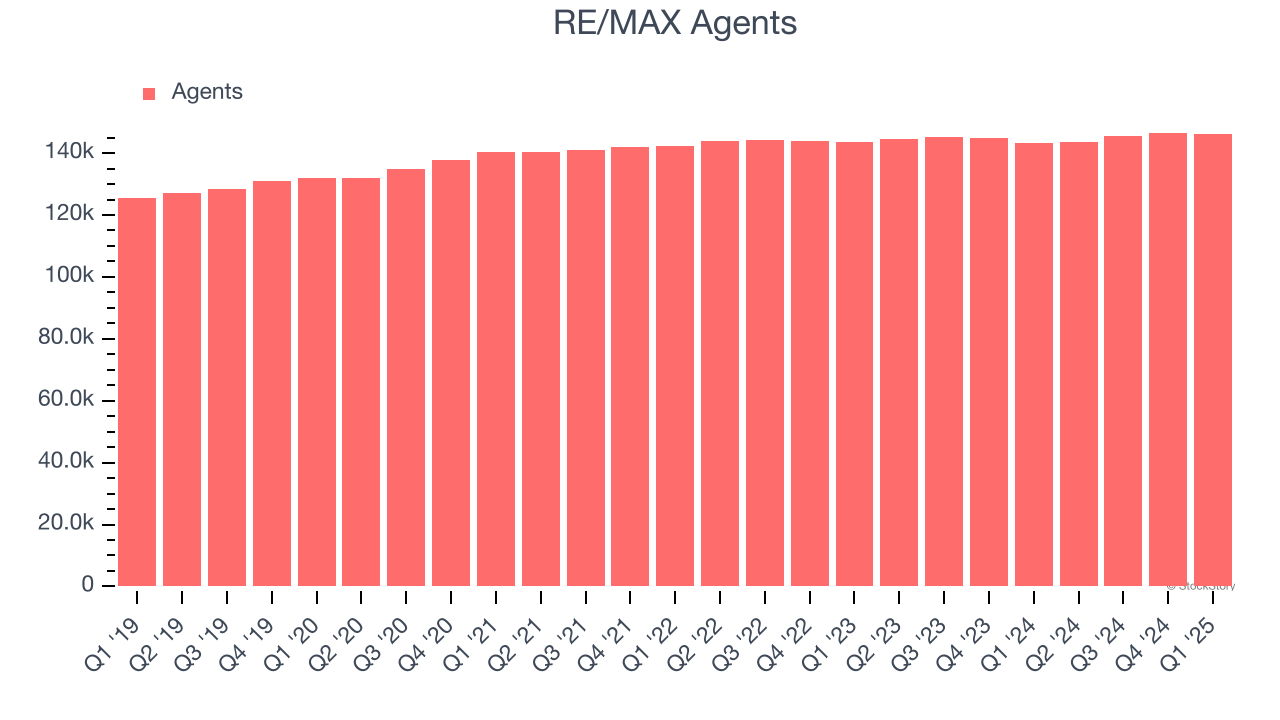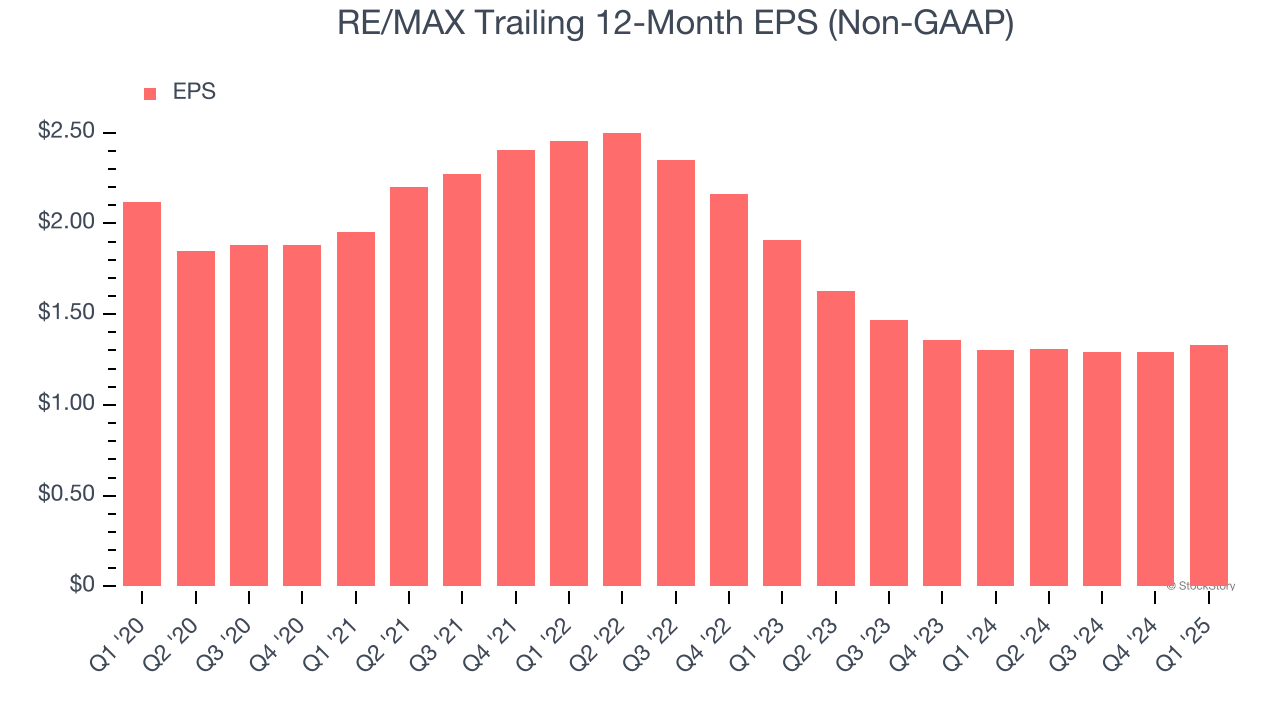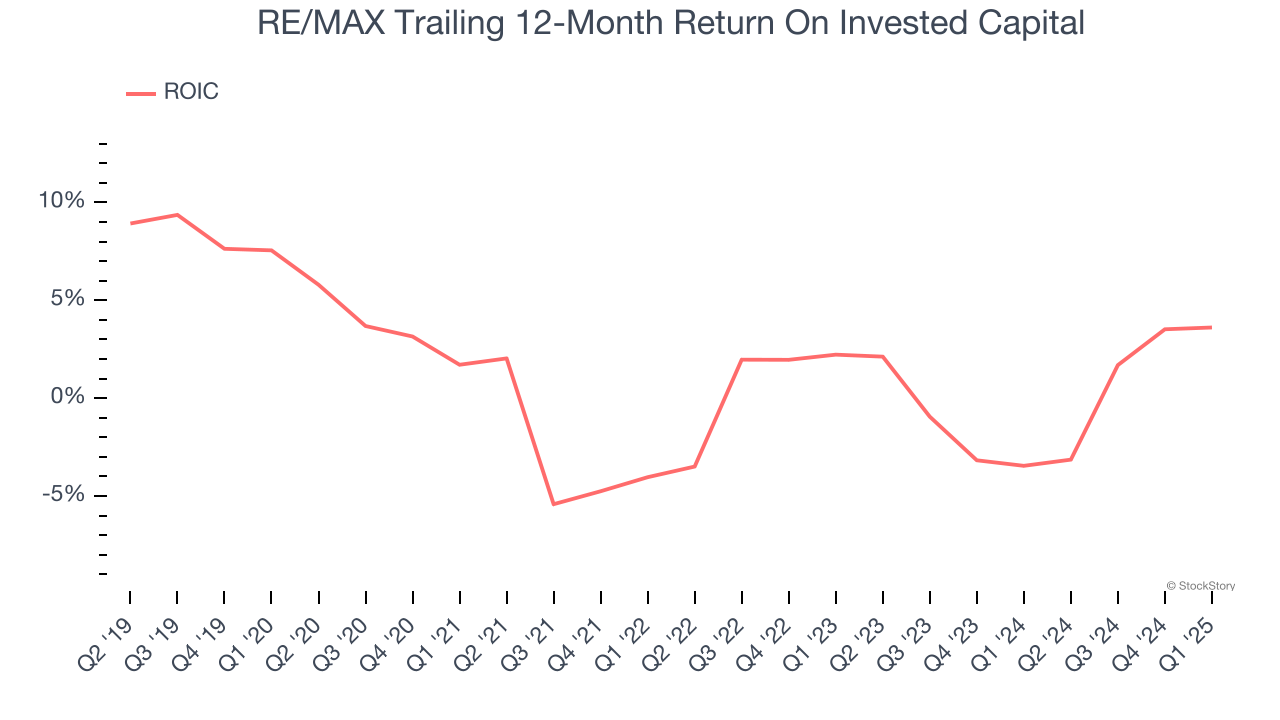
Shareholders of RE/MAX would probably like to forget the past six months even happened. The stock dropped 32.1% and now trades at $7.93. This may have investors wondering how to approach the situation.
Is now the time to buy RE/MAX, or should you be careful about including it in your portfolio? Get the full breakdown from our expert analysts, it’s free.
Why Do We Think RE/MAX Will Underperform?
Even though the stock has become cheaper, we're cautious about RE/MAX. Here are three reasons why there are better opportunities than RMAX and a stock we'd rather own.
1. Inability to Grow Agents Points to Weak Demand
Revenue growth can be broken down into changes in price and volume (for companies like RE/MAX, our preferred volume metric is agents). While both are important, the latter is the most critical to analyze because prices have a ceiling.
Over the last two years, RE/MAX failed to grow its agents, which came in at 146,126 in the latest quarter. This performance was underwhelming and implies there may be increasing competition or market saturation. It also suggests RE/MAX might have to lower prices or invest in product improvements to accelerate growth, factors that can hinder near-term profitability. 
2. EPS Trending Down
Analyzing the long-term change in earnings per share (EPS) shows whether a company's incremental sales were profitable – for example, revenue could be inflated through excessive spending on advertising and promotions.
Sadly for RE/MAX, its EPS declined by 8.9% annually over the last five years while its revenue grew by 1.5%. This tells us the company became less profitable on a per-share basis as it expanded.

3. Previous Growth Initiatives Haven’t Paid Off Yet
Growth gives us insight into a company’s long-term potential, but how capital-efficient was that growth? Enter ROIC, a metric showing how much operating profit a company generates relative to the money it has raised (debt and equity).
RE/MAX historically did a mediocre job investing in profitable growth initiatives. Its five-year average ROIC was 0%, lower than the typical cost of capital (how much it costs to raise money) for consumer discretionary companies.

Final Judgment
RE/MAX falls short of our quality standards. Following the recent decline, the stock trades at 6.1× forward P/E (or $7.93 per share). While this valuation is optically cheap, the potential downside is huge given its shaky fundamentals. There are better stocks to buy right now. We’d suggest looking at the Amazon and PayPal of Latin America.
High-Quality Stocks for All Market Conditions
The market surged in 2024 and reached record highs after Donald Trump’s presidential victory in November, but questions about new economic policies are adding much uncertainty for 2025.
While the crowd speculates what might happen next, we’re homing in on the companies that can succeed regardless of the political or macroeconomic environment. Put yourself in the driver’s seat and build a durable portfolio by checking out our Top 6 Stocks for this week. This is a curated list of our High Quality stocks that have generated a market-beating return of 176% over the last five years.
Stocks that made our list in 2020 include now familiar names such as Nvidia (+1,545% between March 2020 and March 2025) as well as under-the-radar businesses like the once-micro-cap company Kadant (+351% five-year return). Find your next big winner with StockStory today.





